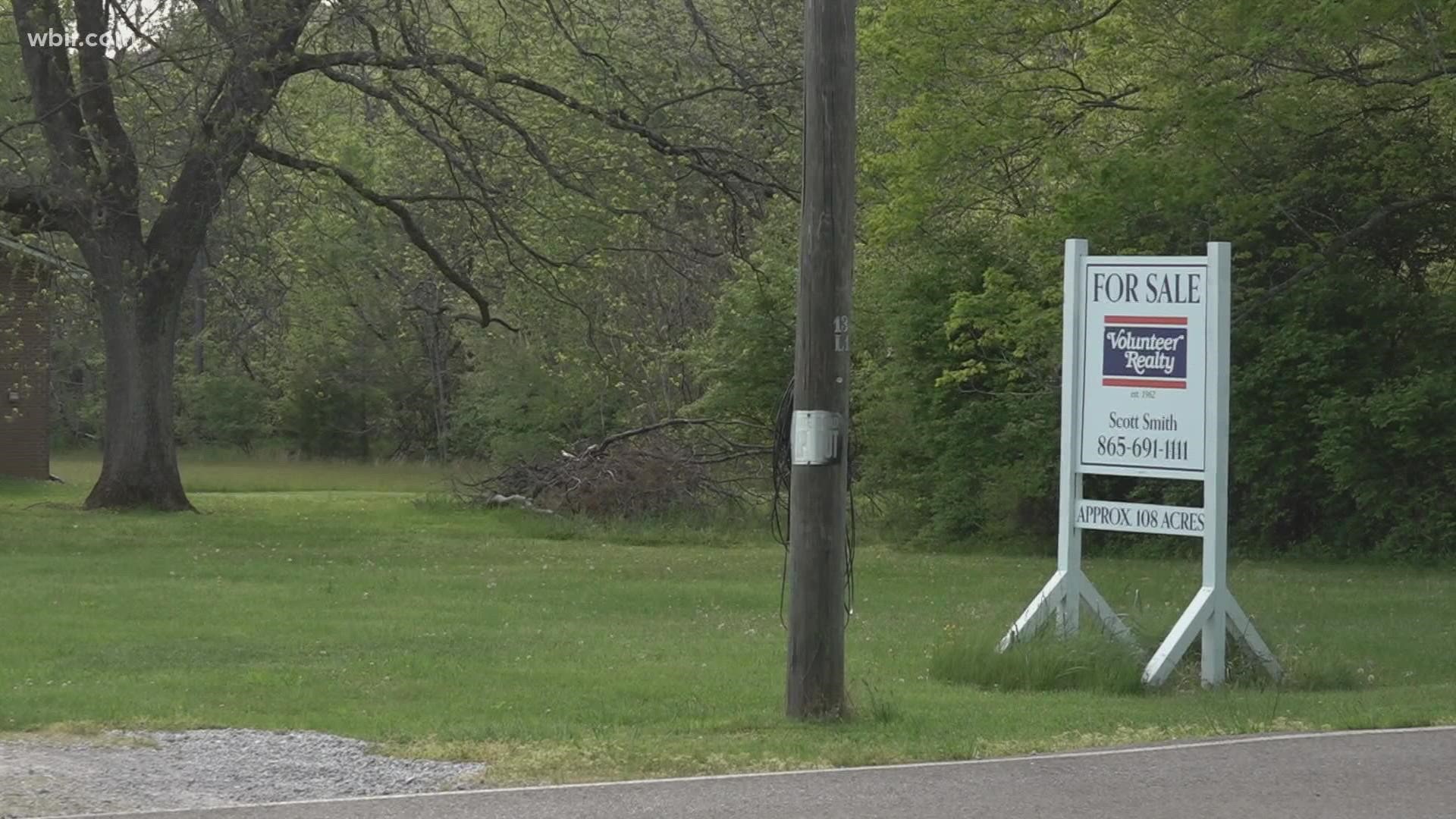KNOX COUNTY, Tenn. — In rural Knox County, several farmers have watched as developers take land previously used for agriculture and turn it into housing developments or businesses.
"Great farmland is great development land," said Adam Thompson, the owner of Thompson Beef. "It's flat, it's fertile."
Between 2001 and 2015, the American Farmland Trust said 660,000 acres of farms have been re-developed or are compromised, unable to be used for agriculture. That area is larger than the total area of the Great Smoky Mountains National Park.
"It almost feels as if they look at [farms] as an unproductive, unprofitable piece of property," said Thompson.
Penny Harrell lives in North Knox County, in the Gibbs area. She's worried about a developer re-developing a farm across from her house into a large housing development.
That farm, on Thompson School Road, grew grass that turned into hay for many farmers in the area. Harrell remembers using it to sled, to play and as a small airport for the area.
"Our farms are just disappearing," Harrell said. "It's like the city is moving to the country."
In their April meeting, the Knoxville Knox County Planning Commission approved a plan to allow 2.9 housing units per acre of that property. The planning commission staff recommended 2 units per acre.
That agricultural area was one of ten areas that were rezoned from agriculture to residential or business.
"It was one farm after another being rezoned," Harrell said.
The planning commissioners hinted at a lack of homes in the county and the high prices of real estate while voting to add more residential areas in Knox County.
"I think it makes sense where we can do it, we should do it," said Jeff Roth, one of the commissioners.
Thompson said people losing farmland will have consequences at the grocery store, calling it death by a thousand paper cuts.
"We don't feel the loss of each individual acre, but we're giving up something we can't live without," said Thompson. "Once we lose farmland, it never goes back."

